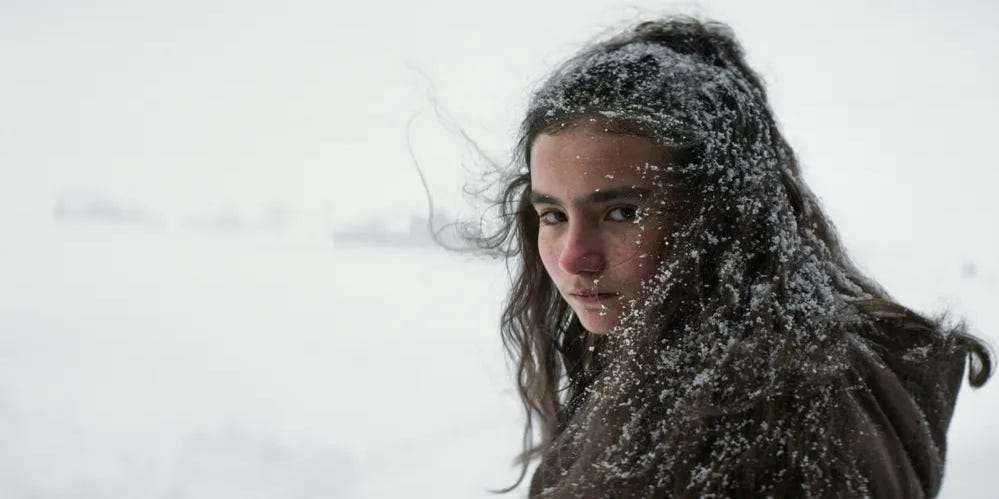Perhaps spending more than three hours with a gloomy, resentful individual in a secluded region of Turkey may not initially seem like an enjoyable movie experience. However, missing out on Nuri Bilge Ceylan’s “About Dry Grasses” would mean overlooking a profound and captivating cinematic journey.
Despite its confined setting, this film can be described as an existential masterpiece that delves into both personal experiences and those portrayed on the screen.
Samet (Deniz Celiloğlu) is not the most likable character. Hailing from Istanbul, he finds himself teaching in rural Anatolia, where the winter landscape appears desolate, harsh, and isolating.
In this agricultural community, Samet struggles to conceal his belief that his students lack sophistication. His eagerness to leave as soon as a transfer opportunity arises is palpable, resonating with the desolation of the environment.
An art teacher and a talented photographer, Samet excels at capturing both sweeping landscapes and intimate human expressions. However, his effectiveness in the classroom is questionable, tainted by his contemptuous attitude.
Samet develops a fondness for Sevim (Ece Bağcı), recognizing her potential beyond her current circumstances. Yet, accusations of inappropriate behavior towards students, including Sevim, surface against Samet and his roommate Kenan (Musab Ekici).
In response to these allegations, Samet reacts with anger towards Sevim, disregarding the complexity of her emotions. Selfishness appears to be his primary driving force, overshadowing any genuine concern for his students.
Amidst this school turmoil, Samet encounters another teacher, Nuray (Merve Dizdar). Initially disinterested, he plays matchmaker between Nuray and Kenan, dismissing her as too politically left-leaning. His indifference extends to Nuray’s amputated leg, a consequence of a suicide bombing incident.
The film subtly addresses political themes through Nuray’s backstory, shedding light on the oppressive Turkish government through understated bureaucratic presence and unexplored accusations.
As the narrative unfolds, Samet’s interactions with Nuray evolve, revealing a shift in his demeanor. His motives towards Nuray seem driven more by disruption towards Kenan than genuine affection, reflecting his self-loathing nature.
The core theme of “About Dry Grasses” revolves around a man yearning for a different life while neglecting the one he currently leads. It explores the awakening of a teacher, friend, and lover who has chosen to bury his humanity rather than embrace his surroundings.
While Samet may have faced adversity, the film emphasizes his journey towards self-realization and the possibility of attaining a more fulfilling existence. The question lingers whether this epiphany comes too late.
The film’s slow-paced character development challenges viewers to endure Samet’s melancholic persona, anticipating a cathartic resolution. By contemplating the emergence of dry grass from winter’s snow, Samet symbolically embarks on a journey towards self-improvement, mirroring the audience’s aspirations for a better life.
“About Dry Grasses” excels in prompting introspection within viewers, transcending mere empathy for on-screen characters. The performances are exceptional, and the direction skillfully navigates complex character dynamics, offering a poignant portrayal of rural life that resonates with diverse audiences.
As the film premieres this Friday, seize the opportunity to immerse yourself in this enriching cinematic experience before its limited screening period ends. Explore the profound themes and nuanced storytelling that Turkish cinema has to offer, uncovering hidden gems that captivate audiences beyond the Midwest.
